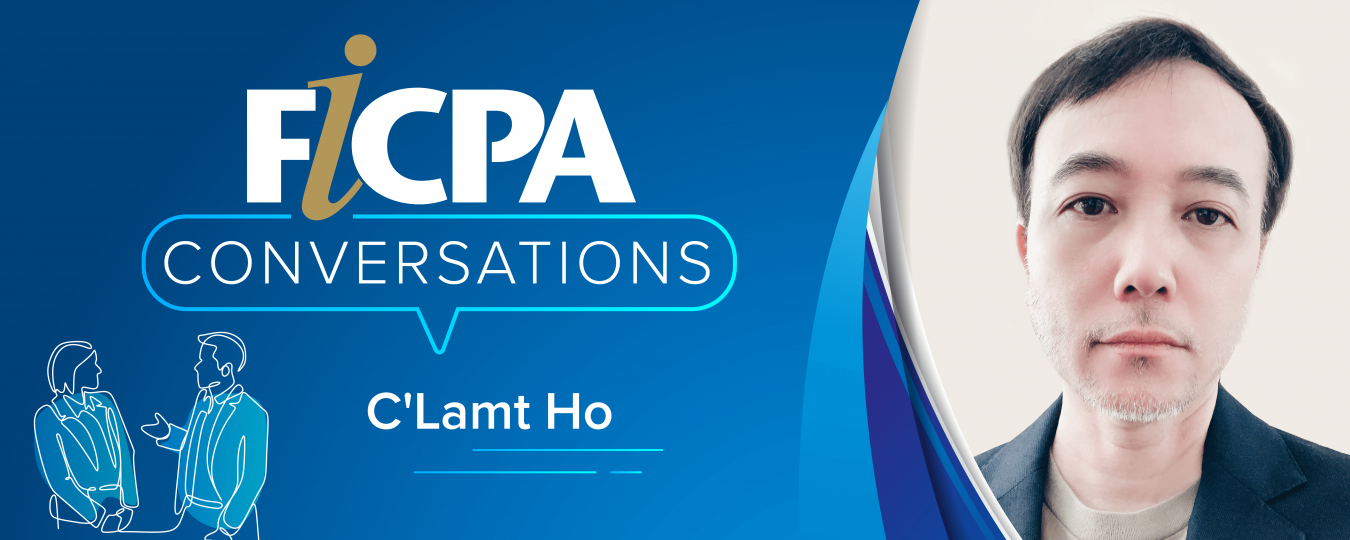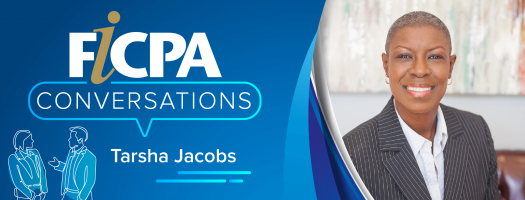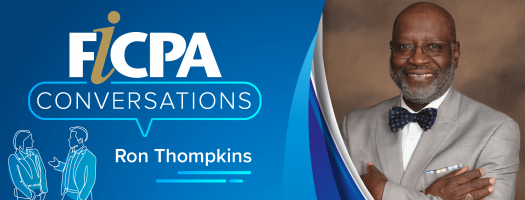
For our latest FICPA Conversation, we turned to a dedicated educator and devoted FICPA member: C'Lamt Ho.
C'Lamt is an assistant professor of accounting at Saint Leo University and the 2020-21 chair of the FICPA's Accounting Careers and Education Committee.
We discussed his passion for both his students and the profession, including how he went from actively avoiding accounting courses to eventually teaching them himself:
You initially had some trouble mastering accounting, and opted to pursue international business and social psychology instead. Of course, later on, you returned to accounting and are now helping other students succeed in the field. How do your early struggles back then inform your teaching today?
I first took an accounting course taught by an assistant at The Ohio State University. This was the first time I was exposed to accounting concepts, and we dove directly into the preparation of all financial statements. It did not go well; I was totally lost. I dropped the course and never wanted to revisit it again. Of course, my first job after college took me right back to accounting, and now I have students of my own.
First, I recognize each student’s individual challenges during their first class with me. Second, I tell them that they are not the only person in this world who has ever gone through this. I struggled with my first accounting class, as well. Accounting is like its own language. Students need to be patient and take one small step at the time. The more they’re exposed to the language, the more they’ll begin to understand it. It is crucial for students to understand fundamental concepts before they move on to higher-level activities – like the preparation of financial statements.
At the same time, I’ve always tried to make accounting concepts more practical to everyday life. I use personal examples and ask students to relate to the basic concepts of the accounting equation. I’ve been using this approach in all my accounting courses since 2004.
You're the outgoing chair of the FICPA’s Accounting Education and Careers Committee, developing programs for students and educators alike. What is it that’s made you so passionate about the FICPA and the future of the accounting profession?
Serving others is the most honorable thing for me to do, and it’s a big part of the FICPA. When I was a little, we didn’t have a lot to be able to give others. Helping someone was the only thing that I could do at the time, and it has become a second nature to me ever since.
When I went through my accounting education and started on my career path, I didn’t receive the kind of student-focused, early-career development that’s available today. For instance, Saint Leo faculty members help our students to land internships and secure full-time positions within the industry. And, of course, we’re working with the FICPA to advance these efforts and to support our students.
Accounting students are the future of the accounting profession. We need to expose them to as many different experiences and opportunities as possible in order for them to build relationships with practitioners. What students learn in the classroom is very different from what they can pick up at a CPE event, conference or seminar. Our Saint Leo students have provided a lot of positive feedback over the years after attending events put on by the FICPA’s Suncoast Chapter. It is incredibly rewarding to see students find a new job in accounting field, pass their CPA exam, and then give back to their communities. These are the things that motivate me to keep doing more for our students and the FICPA.
You work with students of all ages and from all different backgrounds. When you have a student who’s maybe unsure of whether accounting is really for them, what’s your pitch? Why should someone of any age, from any background, consider a future in accounting?
The biggest misconception about accounting is that it requires high-level math. I field this kind of concern from my Intro students all the time, and it’s the reason people shy away from accounting in the first place. But I tell my students that it’s myth. If you know how to complete simple arithmetic – addition, subtraction, multiplication, division – the chances of you overcoming this myth are high.
I talk to all my students about their future career plans and goals during their new-student orientation session. I share my personal experiences with them and how I ended up going back to school to get my B.S. in Accounting. An accounting position is a respectable job, and (in general) accountants are well-compensated. I tell students that a career in accounting has a rock-solid job stability.
If you have an accounting degree, your age and your background don’t matter – and you have a lot of options. Every business in every industry needs accountants. You could even get the IRS’s Enrolled Agent Certification to do tax. Or, if a full-time job in accounting isn’t necessarily your goal, you can create a part-time bookkeeping business. The opportunities in tax and other accounting services are endless. I believe current students who are hesitant about getting an accounting degree should meet with their faculty members to learn more about all the different paths they can take.

